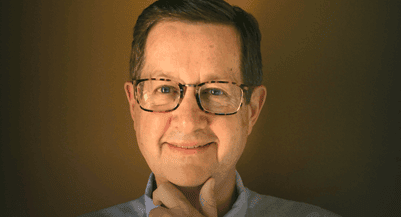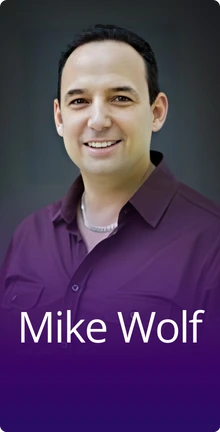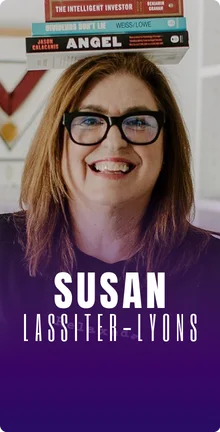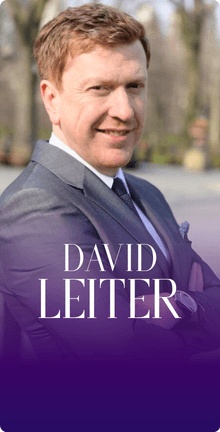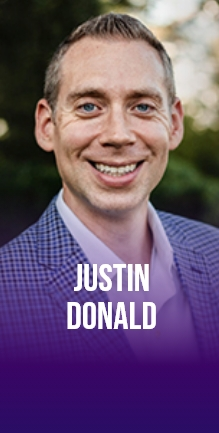In this Episode
- [01:46]We hear about how many books Robert has written so far — and how many he has left in him! He also talks about which book he’s most proud of, and the lengths he went to in order to get his first book published.
- [06:38]Stephan got started in his first business while in grad school for biochemistry, which wasn’t at all related to the business. We hear how he got his initial funding.
- [09:36]Whenever you see a great success story, you’ll usually see some form of a challenge or someone doing something out of the ordinary behind the scenes. This is part of what Robert calls the success cycle.
- [13:14]Declaring a “done” rather than setting a goal is one of the traits of happy, successful people, Robert explains.
- [14:31]We learn about Robert’s book The Challenge and its powerful premise.
- [17:59]Robert describes one of his favorite students (and now business partner) who lives in Japan and was homeless when he discovered Robert’s books.
- [20:08]One thing that Stephan tells attendees at his presentations is that they should learn the material he’s teaching with the intention of teaching others.
- [22:09]Robert talks about how he chose the three people featured in his book The Challenge, from the 60 who showed up and wanted to get involved. The key, he explains, lies in refusing to accept rejection.
- [24:50]Robert’s book One Minute Millionaire tells the story of a woman who loses her husband, her two small children, and her job.
- [27:14]In two weeks, Robert will be holding challenges in Hong Kong, Taiwan, and in Japan. He describes how these challenges will be run.
- [30:51]Something else that’s essential for an entrepreneur is the willingness to put everything on the line, Stephan points out, using the example of Elon Musk.
- [34:59]The problem, Robert points out, is that you’re living life forward but revealing it backward.
- [36:46]Gary Vaynerchuk always talks about hustling, and Stephan talks about what the term means to him. He then shares an example of what he means, which is how he got into his second Tony Robbins event.
- [39:29]Robert’s favorite Tony Robbins story took place in 1986, when Robert was republishing one of his books. He describes his encounter with Tony and mentions the impact it had on his life.
- [45:00]Robert had the idea for a book about how to make money, but didn’t feel like the best candidate after going through a bankruptcy. He uses a personal example to point out that successful people encourage you, while failures tell you that you’re an idiot.
- [45:12]Stephan returns to the concept of a rejection test and describes the honesty test, which is something that he uses in his own hiring process.
- [48:03]What was the secret to buying seven properties in 57 hours without having down payments, as Robert describes in his book, Nothing Down?
- [52:41]Robert explains how someone can become a millionaire in a minute, as he describes in his book One Minute Millionaire.
- [55:57]Where can listeners go to find out more about Robert and learn more of what he has to teach?
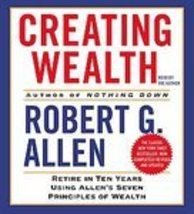
Bob, it’s great to have you on the show.
Hey, thanks, Stephan. I’m glad to be here.
Awesome. We’ve known each other for a few years now, I was in your awesome mastermind, The Fortune In You. I’ve learned a ton from you, you’re an amazing New York Times Bestselling Author, real estate investor, expert in a lot of different areas. You’re a prolific writer. How many books have you written so far?
Eleven so far. I got 10 more in me, and that’s small by some comparisons, really.
That’s amazing. Which book are you most proud of?
That’s a hard question. The first book, Nothing Down, was the one that put me on the map. It became a Number 1 New York Times Bestseller and is still selling to this very day, almost 40 years later. Every book is a baby. I’ve got three children, I can’t tell you which is my favorite, I can’t tell you which is my favorite book. My last one, probably.
That’s funny, I can relate. I’ve got three children as well and you can’t pick one over the other. That book, Nothing Down, really put you on the map. How did you end up getting that book deal?
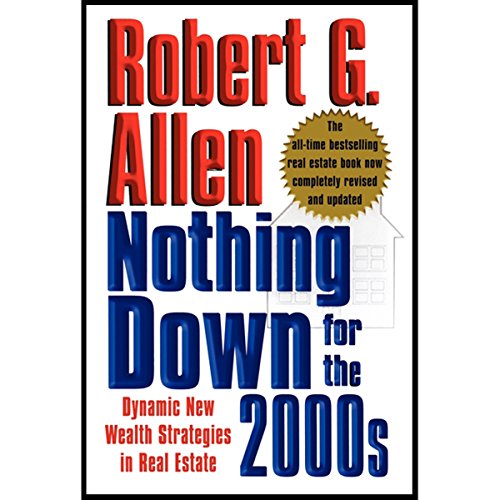
I knew I wanted to publish a book. I went to the Bookseller’s Convention in 1978 and it was in Atlanta that year, it’s usually in New York. That year, it was in Atlanta. I prepared a book proposal, I had 20 beautiful silk screen covers, professionally edited, it was a piece of work. I went to the Bookseller’s Convention not knowing you’re not supposed to go as an author, you’re not supposed to pitch your books, but I did. I waited until the president of Simon & Schuster came to the booth, his booth. Mr. Simon, I went up to him and I said this is your next bestseller. They had some bestselling real estate books so he took it back to his editor and eventually I called him when I got back from the convention and as they say, rest is history. They said yeah, we’ll take it, we want it, we like it. It came out in January of 1980, we’re now in 2017. That’s 37 years ago. What put me on the map was my challenge where I said send me to any city, take away my wallet, give me a $100 bill and then 72 hours up I have an excellent piece of real estate using none of my own money. I did that with the LA Times and bought seven properties in 57 hours, it snowballed into this is a perennial bestseller, it’s one of the classics and most everybody who’s making money in real estate either has heard of it or has read it. That’s what got me started.
That is amazing. How cheeky is that to go to the Bookseller’s Convention and go up to the president of a major publisher and pitch your book when you’re not supposed to do that, that is awesome.
I figured I got to do something crazy. Because if you send your manuscript through an agent to a publisher, 1 in 10,000 manuscripts gets accepted. It’s either doing something wild and crazy or take the odds of 1 in 10,000, I wasn’t one to do that. They still talk about me in Simon & Schuster, I’m that crazy guy that went up to the president and sold my manuscript. But that started a career of writing a book every three or four years, followed by Creating Wealth, also Number 1 New York Times Bestseller. The Challenge, which was about a challenge I did to go to the unemployment lines and pull people off the unemployment lines, then Multiple Streams of Income, huge bestseller. Multiple Streams of Internet Income, The One Minute Millionaire, Cash In A Flash, Cracking The Millionaire Code, books like that. My last one was self-published, it’s on Amazon, it’s called The Four Maps of Happy Successful People; it’s a book on success, how do you succeed, how do really successful people get lots done and pull off amazing things, that’s my latest book.

Awesome, we’ll have to talk about that and some of these other amazing books as well. Before we do, I just have to say that that cheekiness, that willingness to put yourself out there and do something extreme to get the attention of somebody like the president of a big publishing house is the sort of stuff—what’s that quote, it’s about the reasonable man. The reasonable man bends to the will of nature, the unreasonable man bends nature to his will. Therefore, all progress is made by the unreasonable man.
No, I don’t know that quote, I love that quote. I’m going to google that and find that one.
Isn’t that amazing? You’re the unreasonable man that’s willing to put yourself out there in ways that most people aren’t. You start your career as a bestselling author to do something that extreme and that awesome. That reminds me, by the way, of how I got started with my business. When I started, I had no business experience, I had no marketing experience, I built a couple of websites on the side while I was a graduate student studying for a Ph.D. in biochemistry, and I dropped out of my Ph.D. I started a business, an agency, I had no idea what I was doing and I had no funding, all I had was student loan debt. My wife at the time was not working, small children to raise, it was a big risk. The way that I got my initial “funding” was I went to a conference, I talked my way into that, I could not afford those $2,000, I got in for free as a volunteer. They made me the mic runner, and then I’m realizing I could answer the questions better than the panel, better than these experts, including big-named people like G.M. O’Connell, founder of Modem Media. I ended up chiming in on some of these answers that the panelists are giving because I got the mic.
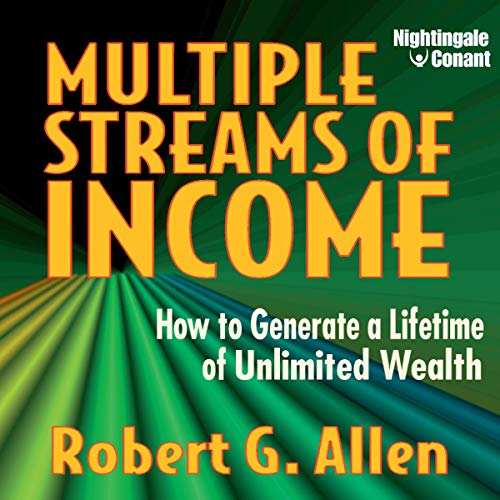
By the end of the day, I had a big pile of business cards, people were telling me over and over again, “You know more than the experts on stage, that’s amazing, I need your card.” I ended up with two big clients from that. Both of them added up to each about a half-million dollars worth of revenue. I didn’t need to get any angel investors, I got two big clients by being super cheeky. By the way, I was uninvited by the conference organizer to Day 2 because I was upstaging the speakers and they didn’t like that. I was told, “You don’t need to come back for tomorrow,” which actually devastated me because I was not expecting that. I felt really rejected. I’m so glad that I did it because if I hadn’t been that cheeky, I wouldn’t have gotten those two huge clients, and that completely set me up for the next several years. I was able to hire staff, ended up hiring contractors initially and then employees. It started the ball rolling for me, it was amazing. The irony of all ironies was the same conference organization, a different conference organizer, but the same company, invited me to speak six months later at a different conference. I actually chaired that conference and I was terrible at it because I didn’t know what I was doing as far as speaking. That really galvanized me to learn the craft of speaking and to keep accepting every speaking gig until I got amazing at it, eventually, I did.
Great. Whenever you see a great success story, you go behind the scenes and you’ll usually see some form of a challenge like that where somebody’s doing—you call it cheeky—something that’s out of the ordinary. They just pull it off. It’s part of what I call a success cycle where it starts with you making a claim, making a brazen announcement to the world that you’re going to do something, and then the world fights back, they push back. They say no, we don’t think you can do that, just like your host disinvited you to come to their conference, and yet eventually they came aboard. It starts this cycle where you now face a deadline where you have to do something that really is going to set you apart, it’s either you’re going to fail miserably or you’re going to be the chosen one. Sometimes, you do fail at these approaches, these cheeky things you do, but a lot of times you’ll come through it, you’ll face a deadline, you’ll go through the deadline, you’ll succeed and then you double down. You go do it again but you do it in a bigger way. This success cycle starts small and then it gets bigger and bigger. You’re doing bigger and bigger things, that’s usually how, if you really do research on people’s successful lives, you’ll find out that’s kind of the way they do it. You’ll take Elon Musk, I just read his biography, have you read that?
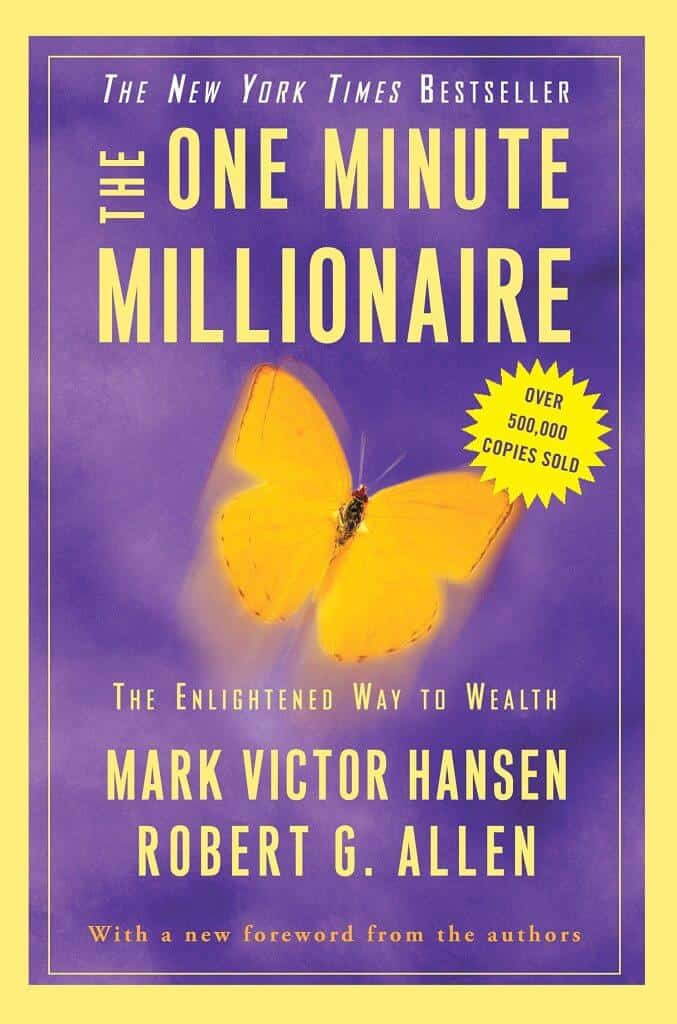
I haven’t, no.
It’s just amazing. He just keeps saying, “I’m going to launch an electric car.” Even when he was dating single girls, that’s all he talks about, I’m going to do an electric car. And then they got into this space industry, I’m going to create my own rockets. He would declare it before he did it and before he was even close to doing it. He would make these declarations, the beginning of the process, he would declare he’s going to do something and then you get the push back from the world and then you say let me show you. I love the fact that people push back because then you have to go prove yourself right. Anyway, that’s what my life has been. I’m the challenge guy. You look at the word challenge, in the middle of that word is my name hidden in there, Allen. I’m always doing crazy challenges. I’m motivated by it, I’m inspired by it. I’m 69, I’ve got a few more challenges in me.
I’m sure you do, you have a whole bunch. You’re only halfway there. I read a book called Impossible To Inevitable by Aaron Ross. Actually, Aaron was on this podcast. He talks about a very similar thing to what you were describing in the success cycle and that challenge and the push back from society. He calls it a forcing function. A person wanting to get in shape could do one of two things, they could get a gym membership or they could declare on Facebook to all their friends that they’re going to run the LA Marathon in 2018, which one is going to result in that person getting in shape? That’s the forcing function of doing that declaration. I’m willing to put myself out there and be embarrassed if I don’t actually deliver.
Do you like that book? Is it something I should buy?
Yeah, you should, it’s a great book.
I’m now going to Amazon right now and adding it to my one-click checkout, and done, it’s on its way home.
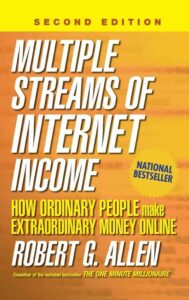
I love how you multi-task, in the middle of an interview, that’s awesome.
I like that word done, it’s part of The Four Maps of Happy Successful People. You declare it done, you don’t set a goal. Setting goals is old technology. You write it down and then you wonder about it and procrastinate it, I don’t like that. When you say you’re going to get something done, just do it. Get it done. That’s what I just did. I’ll go read that book and apply that to my own life, I’m hungry to learn, aren’t you?
All the time, it’s one of my top five strengths. I took the StrengthsFinder assessment and learner is one of my top five.
I took that too, I love that book. There’s a series of books that Buckingham wrote, excellent, great.
Yeah. Let’s talk a little bit more about challenges. You wrote the book The Challenge, tell me again what was the premise of that?
Send me to an unemployment line, let me select someone who’s broke, out of work, and discouraged. In two days time, I’ll teach him the secrets of wealth, in 90 days they’ll be back on their feet, $5,000 cash in the back, never to set foot in an unemployment line again. It was to go to an unemployment- everybody said that I could do the challenge with San Francisco with the LA Times because I was Robert Allen, therefore I could pretend I was broke and go to a city and have them take away all my money but really I had a lot of money behind me. I was just using techniques. I’m doubling down, send me to an unemployment line, let me show that I can pick somebody and we can teach them to succeed, in 90 days they’ll make money. That was that book. It has been re-released on digital format, it was published in 1987, it’s 20 years old.
I went back and re-issued it with all of the things I had learned in 20 years having done that particular challenge. It was teaching people who had no money, nothing, no credit, teaching them that wealth is not money, wealth is not what the banker thinks it is; cash, credit, cash flow, collateral. That’s what the banker wants to prove that you are good with money. All wealth starts from nothing, all of it. It starts from an idea, it starts from a passion, it starts from a dream, it starts with somebody who’s willing to do whatever it takes. It all starts with attitude, what I call inner wealth. When I went to San Francisco and they took away all my collateral and cash, etc., I wanted to prove that anybody could buy property with nothing, with zero, nothing but dreams and goals, chutzpah—that’s another word for cheeky.
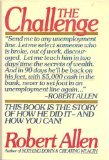
That’s right, I love that word.
I did it, and then the media said wow, that’s you, you can do it. Ordinary people couldn’t do it. I said let’s go to people who aren’t ordinary, let’s go to the absolute broke. We went to the unemployment lines and selected three people. They had their first qualification—they couldn’t have a job, they couldn’t have any money, they had to have bad credit, that’s what I wanted. It took a couple of days of teaching them, a lot of it was mindset, and then it was a system, two parts. System and a mindset, and then we coached them on the phone over the next 90 days. When they had a question, they called us. 90 days later, we had an incredible success story. All three of them eventually did extremely well, changed their lives, but changed my life too. That was the premise of that book.
That is amazing. How are they doing these days? That was 20 years ago. Are they still successful?
Yeah, it was a long time ago. I’ve lost touch with two of them, one of them I called recently, Nora’s doing fine. I’ve lost touch with the other two. One of them I heard was in politics, and really was enjoying himself. I haven’t touched base with Mary in a long time.
Oh. You changed lives. I’m sure you’ve changed so many lives that you’re not even aware of because they read the books, made a life change based on what they learned, and now they have paid it forward in some way and they have no idea that happened.
One of my favorite students is in Japan. We’re now business partners doing some projects in Japan. We were having a business meeting in the hotel and he looked out over the park, Shinjuku Park, right where the city offices are. He says that was my home when I read your book. I said what do you mean? He says, “I was homeless. I failed miserably and somebody in the park recommended that I start to study and read so I went to a used bookstore and I found Multiple Streams of Income. Of course, he’s very successful now. I have stories like that all over the world, people come to me, craziest stories to tell. It’s very gratifying. The money is less gratifying now because when you made the money, it’s like yeah, been there, done that.
You still want the money, of course, but what really motivates me now is why we’re on this call right now, is because somebody is going to hear us talking and they’re going to go to robertallen.com and download something and become part of my little circle of influence and maybe read a book or whatever. Their lives are eventually going to get changed. I may never know who they are. The greatest joy for me is when somebody comes up to me and they said I read your book and I changed my life, I was on the alumni board of BYU, Brigham Young University, and we went to alumni meeting. That was 25 years ago, I was on the alumni board and I’m sitting at this meeting of people around the board and he said, “Are you Robert Allen?” I said, “Yes.” He said, “I read your books, now I have a couple of hundred apartment doors as a result of that, and I own one of the buildings that you bought and renovated. I’m the owner of one of those buildings now.” I just said wow, what goes around comes around. It’s just crazy, isn’t it?
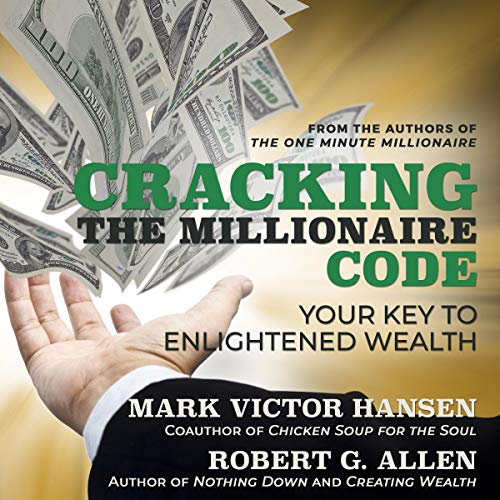
That’s amazing. One thing I tell my attendees of my sessions, presentations, keynotes and so forth, is when you’re paying attention, learn this material that I’m going to teach you with the intention of teaching it to others. My invitation to our listeners right now is that when they start studying from you, The Multiple Streams of Income, these challenges, Cracking The Millionaire Code, all that sort of stuff that they can apply in their lives, they can affect other people’s lives, people who they care for and love. When they absorb this information with that intention of passing on that valuable knowledge to those loved ones, their retention rate is going to go sky-high. 30% at best, to maybe 90%.
Absolutely. Whatever you learn, you gotta teach. By teaching it, you find it drives it deeper into your own heart, you finally figure it out, that’s why you see all these gurus out there, they’re very successful. The reason they are is because they teach it. After a while, their students start saying that goes against what you just taught me, so you have to practice what you preach, basically. The Challenge book, as the sequel to the story is Mary who succeeded, and they made $100,000 on their first year after that training with me. Then, she went to Texas and she taught her own small group of students like I had done and had great success teaching them how to succeed. That means the whole cycle cycles back. If you’re a teacher, you learn it and then you teach it to other people and then it gets paid forward.
So true. I’m curious, how did you choose Mary and Nora and what was the guy’s name?
Philip.
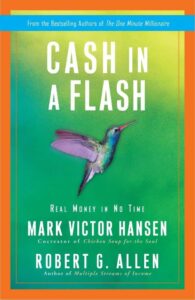
How did you choose these guys?
The very easy way. We invited 60 people. We handed out flyers at the unemployment lines of St. Louis. We handed out a thousand flyers. About 60 people showed up the next morning. I expected hundreds, but 60 people showed up. I told them this is going to be a lot of work and that they’d have to give dedicated attention, I wasn’t going to give them any money and they weren’t going to get paid from any employment whatever, this was just them making money for themselves. About half of them left at that point. I said, “Do you want to make an application? Fill out this application and hand it into me.” As they walked toward to give me their application, if they wouldn’t look me in the eye, I put their application in my left hand. If they looked me in the eye, then I’d put their application in my right hand. I ended up with 8 or 10 of them that looked me in the eyes, like ‘pick me, I’m your guy/gal.’ I let the others go. The ones who were in my left hand, I said thank you very much, you’re not invited. And yet, I told them where we would be and I gave them a book and I told them what hotel we were going to come to if they wanted to show up, they’re welcome to come and take a peek.
None of them ever showed up, but the eight or nine that looked me in the eye, we interviewed them that night with the ex-mayor of St. Louis, Missouri, and I selected the ones I thought would be my winners, I thought there were eight or nine really good ones. But then we called all of them on the phone and rejected all of them. None of them were accepted. “Sorry, you were not selected.” Three of them did not believe us. They called us back and they said, “You must be joking. This is mine. You got to select me.” That’s the clue. If you won’t accept rejection, then you won’t accept rejection. But if you accept rejection and nine of them were rejected, and six of them bought it. They went home and said, “I guess I wasn’t selected,” and three of them didn’t buy it. If they won’t even buy me rejecting them, then nothing’s going to stop them, and that’s what I was looking for.
Wow, how did you come up with that test? That is genius.
You’re just launching into something, I don’t know, can’t remember to tell you the truth.
Amazing. You can apply that idea, that test, in hiring, in screening candidates for either employment positions or contractor positions. Especially if you’re looking to hire salespeople or people that are going to be market-facing, customer-facing, that’s powerful.
In the book, The One Minute Millionaire, it’s two books in one, actually. It’s non-fiction on how do you make a million in a minute, and the other side is a story of a woman who loses her husband and has two small children and her parents are kinda wealthy and they pull some legal shenanigans and steal her children from her as an unfit mother. Now, she has no husband, no money, no children, she’s done. She’s a waitress in a hotel, this is fictional, we saw Oprah as being the coach. She’s a waitress and she’s waitressing this small group of rich people and Sam as we call her, Samantha, says to the rich group, “I’m looking for a guinea pig, somebody that I can teach my principles to that I can use to make sure that it works.” Of course, Michelle, the poor, broke lady, her ears perk up and she goes I’m your guinea pig. Sam, she’s getting in her car, Mercedes, and says to Michelle, “I’m sorry, I can’t pick you.” Michelle stands there as the car starts to drive away and she runs up and bangs on the window and says, “No, I’m the one you want.” Sam says, “Sorry, I can’t pick you.” Michelle says, “But…” And then Sam says back to her, “That’s three rejections, get in the car. Let’s go.” That’s how winners win, you can’t stop them. They want what they want, and nothing can hold them back. Ordinary people, they take one rejection then they quit, they don’t deserve it.
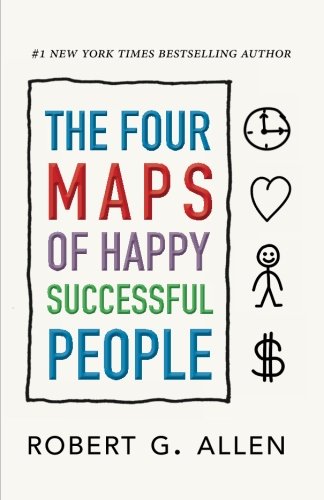
The author of the Harry Potter novels, she got rejected how many times? I forget, it’s an insane number.
Every great success story will show up similar to that. Most people, they look and they aww and they ooh and they see how wonderful and successful they are but they don’t realize the sacrifice that went into it.
Do you use this rejection test when hiring people like potential partners, potential salespeople, and so forth?
I’m doing a new challenge in Asia two weeks from now, actually. I haven’t done a challenge in the longest time. One of the owners of a network marketing company called [Orix.] I’m going to do a challenge in Hong Kong, in Taiwan, and in Japan. We’re going to go to that city, we’re going to invite people to come to a meeting, and I’m going to sift down from the 100 to a handful, 5 or 6, maybe 20, and I’ll say would you like to make money in the next 24 hours? You’re not going to join a company and then hope to make some money at this, you’re going to make money by tomorrow night. Would you like that? In other words, the challenge this time is rather than buying a property in 72 hours, or having a poor person make money in 90 days. It’s like if you’re selected, you’ll be making money tomorrow. Then, you have to commit to me for 90 days. You have to do exactly what I tell you to do, therefore I’m going to select six people. If you don’t make it as part of that selection process, then you can be in the ones who watch.
We’re going to have a team one and team two. Team one is the ones I select, team two are the people that I reject. I’m going to put you with my business partner Tom, we’ve been together for 30 years doing all kinds of seminars and things like that. It’s his 33rd anniversary today, by the way. Tom will take the rejects and I’ll take the people who are accepted and we’re going to have a competition. In a sense, if you’ve been a reject, then you’re either going to accept it and you’re going to go darn it, I guess it didn’t work this time, or you’re going to declare the success cycle I’m trying to tell you. You declare and then you go watch me. We’re going to have a whole team of people who—I expect the rejects will beat me, will beat the ones I teach, the ones I select because there’s something that comes from a rejection that just is so motivating to the right person. The right person is usually an entrepreneur.
In America, 85% of the people are employees, and 15% are entrepreneurs. Entrepreneurs love a challenge. When you tell them they can’t do something, you tell them you can’t do it, like lights of fire, it just flips a switch and they go, “Who the hell do you think you are to tell me that I can’t do it? If you won’t help me, I’m going to show you.” And then you start seeing the success stories of great entrepreneurs in history and they always had a story like that. They have a story where somebody rejected them and they get all huffy about it. The Elon Musk story, it’s exactly like that. Somebody tells him he can’t do it and he says, “Watch me.” Therefore, it’s almost like rocket fuel in his case, it really was rocket fuel. It was rocket fuel to motivate. If you’re an entrepreneur, somebody tells you you can’t do it, if something inside you switches, that means you’re a real special person. You watch TV and you’ll just see people when they talk, just notice their conversation and you’ll hear that story will come out in the conversation somewhere along the way and lets you know why they won.
In America, 85% of the people are employees, and 15% are entrepreneurs.
Cool. Another thing too that I think is essential for that entrepreneur is that willingness to put it all on the line. Elon Musk did it, he was one, maybe two launches away from bankruptcy. He put it all on the line, personally and business, he would be ruined completely personally if the rocket launches failed for the next one or two times and he was trying to get these rockets to land so that they could re-use the booster for the initial stage of the rocket. That has been unheard of, nobody ever tried to do that and pulled that off successfully. This was a serious moon shot and they kept having failure after failure and all that expense, and then they got it. He was so close to being in financial ruin for it.
He was literally a week away in 2008 when the world fell apart. He was out trying to raise money so he could continue. He’d had a successful launch but he needed to raise the money to keep paying the payroll so they could take the success and make it happen. He’s down to literally a week away at the end of 2008, in the worst possible time. One of the thunders pulled a plug on him and he’s just working night and day, finally, he figured it out within a few days of total bankruptcy. Now, his net worth is $20 billion. You go oh that’s Elon Musk, look at those beautiful Tesla cars driving around the place. You don’t realize that it’s down to days away from total, complete failure. That’s the story.
I had, in much smaller scale, a similar sort of story where I was very close to financial ruin. This was in 2000, after the big crash since the dot bust. I was in New Zealand at that time, I had moved not even a year prior, we had set up a business, an offshore development center for my consulting agency business in the States, NetConcepts. We were fulfilling the work in New Zealand, a block from the beach, it was amazing. We couldn’t afford to pay the tax bills. It’s either lay staff off and then it’s a pretty rapid rise down to the bottom because your best people leave because they don’t feel safe and secure anymore, etc., or you keep paying them but you can’t afford to pay the tax bill, in this case, the equivalent of the IRS in New Zealand is called the IRD. We kept putting the bills from the IRD, not just the income tax bills, but the employment tax bills into the drawer for about a year.
Whoa.
I know. We were skating on thin ice, but we believed that we could turn this around. We did. We paid it all off, we worked out a deal eventually with the IRD and paid it all off. It took a while, took a couple of years, but the business remained in tact, we didn’t have all of our best people leave, we didn’t have to do layoffs or anything and we were able to really grow the business even through those tough times. That was tough, it was a lot of sleepless nights, but no risk, no reward.
Yup, I agree. Somebody’s listening to us right now, they are saying do I really want to do that? That’s why you gotta find something that you believe in that much, that’s worth the risk.
You gotta find something that you believe in that much, that’s worth the risk. Share on XIt’s not just about the money, it’s not about the money. It’s about leaving a mark, a positive mark in the world, I think.
The problem with it is that most of it is done—you’re living it forward but you’re revealing it backwards. Somebody once said, right now some of you are living it forward through the tough times. Now, you and I, Stephan, are talking about the fact that we’ve come through the tough times and we’re looking back on it now. Some of you are looking forward into it. It’s difficult. We’re not saying that you will succeed, but the ones who do succeed are the ones that figure out a way to get through it.
Yeah, because there’s always light at the end of the tunnel, you just have to believe in it. You make your own destiny.
That’s the problem with us people who have come through the tunnel, we’re always so philosophical. The guys who are looking at the forward part, they’re looking into the tunnel before they go into it, they say give me the techniques, give me the details, I want the strategies, tell me exactly what to do step by step by step. Unfortunately, there’s only one success book you’ll ever write that really will work, and it’s the one you write on your own life. I’ve written 11 books but they really are my successes. There’s only one book you’re going to write that will work for you and that’s the book you write for yourself. It’s the story of how you did it, how you figured it out. I can’t tell you what that path will be for you, I can teach you systems, I can teach you techniques. But you’ll probably find your own way, and that’s the bottom line. You’ll figure it out somehow.
“Your best resource is resourcefulness.” – Tony Robbins
Gary Vaynerchuk always talks about hustle. I think it’s not about just working yourself to the bone and not having fun or whatever, just hustling 24/7, I think it’s about resourcefulness. Tony Robbins says your best resource is resourcefulness and I totally believe that. If you’re scrappy, if you’re willing to take risks and try new things and forge a path where nobody has gone before and do the thing that doesn’t seem to make sense according to conventional wisdom and you’re getting poo-pooed by your peers and society and you just do it anyway because you believe in it, that is awesome. You will leave a mark on the world. One really short story example of this scrappiness and resourcefulness is how I got into my second Tony Robbins event. I told you how I got into my first event for free as a volunteer, it was called How To Market On The Internet, that was the name of the conference. I ended up going to the Tony Robbins event in 2009 on three different friends’ suggestions because I was in a real rut. I was depressed and going through a divorce, life was not good. That turned me around, just doing the firewalk at the end of the first day was just life-changing. It was the catalyst for a total life reboot. At that same event later that weekend, I was hearing the pitch from Tony about business mastery which was a $10,000 event.
I paid $700 to attend Unleash The Power Within, the event that I was at at the time. $10,000 when I was being paid by my company on a set salary and I didn’t have control of my company anymore, I was a minority shareholder because of the divorce, we were going through acquisition talks. I couldn’t raise my salary, I didn’t have the power to do that. The board didn’t want to do that, I couldn’t ask for $10,000 from my company, that I actually was the founder of, to go to this event, have the company pay for it. Tony taught this thing of ask a better question, you get a better answer. My better question was, “How can I get to this event, Business Mastery, for free?” By the end of the weekend, I had the answer. I got in for free. Pretty cool.
That’s fantastic. Tony’s had a good influence on you and on me. My favorite Tony story is 1986. I’m republishing Creating Wealth which is my second big book. We’re putting it into paperback. Unfortunately, at that time, we had an avalanche of our mountain home in Sundance Ski Resort here in Utah. It set me on a total avalanche of all of my finances, the bank called, my loans, insurance wouldn’t pay, just a catastrophe, a whole bunch of little things just completely fell apart. I ended up losing everything, it was just terrible. I’m in the middle of promoting the Creating Wealth book, I’m on the show and I’m not happy about it because my whole life is falling apart, I moved my family to California in a leased house, we’re starting over from scratch really. Tony sees me, me, Oprah, and Tony in the green room. Their crews are about ready to take off and mine has peeked at that time. Tony meets me as I’m walking off the show and he says, “You didn’t want to be on that show, did you?” I’m like who are you, kid? What do you mean? What are you talking about? He says your body language is horrible, don’t go on a show if you really don’t want to be on that show. I was stunned, by the way, that he would be so bold to really call me on the truth, the truth of the matter. I don’t know how he knew it but my body language was screaming that my life is not working.
My body language was screaming that my life is not working.
He says you got to come to a firewalk, let’s get you re-energized. That was 1986. That was a very powerful weekend for me, kind of got me refocused and as we shall say the rest is history. I got to thank Tony very much for his unbelievable generosity at that time when I needed it. That’s why I try to, if possible, if you find somebody who needs it, you pay it forward like that. There are people all around us that are going through temporary challenges and they don’t know it, it seems like forever, it seems like it will never end. You just have to show them there is a way you can figure this out. You can break through this board, you can walk on fire, you can do whatever it takes, you can do it. It took me five long years to dig out of that hole, five very long, very hard bankrupt years, they were hard. When we came through it, I was a better man. I was not afraid of failure any longer. Before that, I was really afraid of what people would think. I was just petrified of it. And then of course when it happens, you have a bankruptcy, you’ll find out who your friends are. The ones who are not your friends, they just don’t show up anymore. The ones who are your friends, they send you a letter like [00:48:25] sent me a letter saying, “Yup, I know what it’s like, Bob, you’ll make it no problem.” My editor, my publisher [00:48:33], I said, “Vic, I’m so sorry, I’m bankrupt now. All these programs you’ve marketed for me, Nothing Down and Creating Wealth, I’m sorry, I’ve ruined them for you.” I felt so embarrassed, horrifically embarrassed. We talked on the phone, he says, “Bob, no problem, no problem, it happens. What’s your next program?” I said, “What do you mean what’s my next program? I’m bankrupt.” He says, “You got a program in you. What’s your next program?”
Right in the middle of complete chaos, I come up with the title ‘Multiple Streams of Income’. I create this program the year of my bankruptcy which turns out to be one of my most popular books, and I think it’s one of the best books I’ve ever written. It’s worldwide and it became the launching pad for lots of new businesses for me personally. In other words, it was the program I created in the worst possible year of my life that ended up being the savior, frankly. A couple of years later, my book Multiple Streams of Income comes out. They paid me $200,000 to write that book, that was nice cash to get a chunk of cash like that. And then it was just a huge success. It still is. I’m publishing it in Japan this year, so the book came out in 2000. This is 17 years later. Next year, we’re going to launch it with a big, huge event with Robert Kiyosaki and myself in Tokyo, at least that’s the plan at this point. You just have to keep plugging away.
Yeah. What a gift it was to go through that bankruptcy because it presented that opportunity to you see who your friends were. Would you even had the same book come out…
No.
Yeah.
Successful people just don’t have a negative view of the world.
Because of Vic, he’s the one who gave me the idea. I had the idea and I bounced it off, I said what do you think of this title? He said, “Love it, let’s do it.” I remember, I was not what you called the best candidate for a book about how to make money, and yet he trusted me. I will forever be grateful for this unbelievable friend who, at a time when I didn’t believe I was worth anything, saw something in me. Thank you. We all have people like that, whether it’s Tony or whomever. Somebody is out there, in fact that’s what you’ll find they see. Successful ones, they will always encourage you. It’s the failures that tell you you’re an idiot. Successful people just don’t have a negative view of the world. They say you’ll figure it out, go for it, you’ll make it, it’s okay. It’s because they’ve been through the same valleys that you’re going through and they know that it’s just a valley. The hill will start to climb again and you can climb out of it, eventually, philosophically.
Keep the faith. One thing I wanted to circle back on is this idea of a rejection test. I want to share something else that I’d learned that’s kind of similar that I use now in my hiring process. If you wanted to incorporate this, you’re welcome to R&D it, rip off and duplicate. It’s called the honesty test, I learned this from my friend. What you do is you just ask this casually in the interview process, out of these five different attributes, which one do you think is the most important for this position?
The secret here is it doesn’t matter what the position is, there’s always only one right answer, and you can probably guess what it is based on the name of the test. Various attributes that I’m going to give you, tell me which one is the most important for this position. Attention to detail, honesty, creativity, dedication, and whatever. You’re just making up some good sounding attributes. Maybe they say definitely attention to detail because this is a VA role and you don’t want any details to be lost. The only right answer is honesty and the reason why is because that you cannot teach, you cannot instill that value in the person. If they don’t have that, you can never trust them.
Good answer.
Powerful, isn’t it?
Powerful, powerful.
Let’s talk about your other books. Back to the Nothing Down book, that book was about buying 7 properties in 57 hours, what was the secret to success in being able to buy all those properties in 57 hours without having any down payment?
The three fundamentals of real estate are finding, funding, and farming.
It boils down to a very—what I call the three fundamentals of real estate are finding, funding, and farming. Every book you ever read on real estate will basically teach those three things. How do you find bargains, how do you fund them when you find them, and then what do you do with them? Do you flip them and make quick cash, or do you farm them where it becomes like a farm and you have tenants and you earn cash flows, etc.? That’s real estate. The finding part is how do you find a highly motivated seller. They’re only 1% of a marketplace is a highly motivated seller. 1% to 3% where they don’t want their real estate, and I call them don’t wanters, it’s an old exchangers term. I was just in Italy teaching the Robert Allen of Real Estate in Italy. He was using the term don’t wanter in Italy, in Italian, he actually said don’t wanter in Italian. A don’t wanter is a highly motivated seller and most people are not, 99%, 98%. The realtors, they told them they can get their price and they can get their terms, they already bought something else and they need the money and they’re not willing to be flexible.
Yet, a tiny percentage are extremely flexible, they don’t want it. They’re willing to sell it in a way that’s more flexible, maybe they get a higher price or whatever. The first part is when we went to San Francisco, I made 100 phone calls. I got rejected call after call, I got thrown out of real estate offices. I got lots and lots and lots of rejection and I left lots of messages on answering machines. I basically say I’m here in San Francisco, I need to find a property that’s highly motivated seller, want to sell with little or no money down. If that’s you, call me back. Let’s work something out. It wasn’t until [10:00] PM that night after a very long day that somebody called me back. The first real fundamental secret is to look for a person who doesn’t want the property and they’re very hard to find. When they find them, then Nothing Down techniques can be used. There are 50 different Nothing Down techniques that you can use that would give value to the equity that the seller is giving up without you having to come up with cash, that’s the fast answer. That’s what I do, that’s how it’s done.
Why 57 hours? I’m just curious.
I was so tired. We bought the first property in 24 hours, and then the reporter, he said, “We’re done, you succeeded, you beat me.” I said, “Is it a good story if I just beat you small or do you want for me to completely trash you? Do you want to lose small or do you want to lose big?” He said lose big is a better story. Now, he’s on my side, we’re looking for deals together. He’s trying to help me. We bought six properties in the second day and I was just toast by that time, I was so exhausted because we’re going all over the valley, all over the Bay Area. We slept in the first night in a motel in the Tenderloin District of San Francisco. If you know where that is, you shouldn’t. It’s the worst possible red-light zone of San Francisco, and it was the only place I could get a room with no credit. It was two young men showing up at a hotel asking to pay cash and not be willing to give a credit card. It was $35 for the night and I paid $17.5 and he paid $17.5 and there were two beds in the room, I made sure that there had to be two beds. We slept together that night in a hotel together. He wanted to not let me out of his sight.
That’s funny. What an amazing story. You seem to have these forcing functions, I would call them, to use Aaron’s term. Things like buy a property in 72 hours, teaching people how to do that, become a millionaire in a minute. How in the heck would somebody become a millionaire in a minute?
With the right scenario, you can do anything in a minute.
I’ll give you a scenario. Usually, it’s by doing certain minute activities over a period of time that those minutes do pile up to create the million for you, but the fastest way is if you’re an internet marketer. You’re on Oprah let’s say, you got a database of a million people. Supposed you’ve been able to aggregate a database of several 50,000 or 100,000 name databases. You walk into the Oprah show or whatever show you want to be on and you say you’ve got a million name database. Now, you have somebody who’s famous who will say, “Hey, I’d like to play.” I said okay, I’ll tell you what, Oprah, we’ll give you all the money. Whatever we raise in one minute, you can have it all. I have a database, we’re not even going to use your database, Oprah, we’re going to use my database. None of your viewers who watch the show are going to have to call in. You’re going to push the button and it’s going to send an email out to a million people. What should we charge them? How much should we charge for the seminar, Oprah, for the seminar you and I are going to teach?” She says, “If all the money goes to charity, maybe I’ll match it. If you got $10,000, we’ll have a weekend seminar, I’ll match you and see what we can raise.” See how the scenario now boils down to what can happen in a minute?
Yeah.
With the right scenario, you can do anything in a minute. We push the button, how many people would you need to have respond to the $10,000 price point? You’d have to have 100 people, out of 10 million. Absolutely. With that kind of offer, with that kind of interaction with Oprah and myself, I’m a little guy on the totem pole there. What I’m trying to say is if the offer is right, all of us learn this in marketing, if your offer isn’t right, it isn’t going to sell. But if your offer is right, the right people will come out of the woodwork for the right kind of offer.

I’m excited, I want to sign up for that.
You would. Maybe it’s only $1,000. I’ll tell you what. The 100 of us will be in the seminar and we’ll video the entire thing. We’ll make it available for you to buy. All of your money, all the $1,000 you’ll invest in the program, all $1,000 of it will be given to this charity, whatever charity that Oprah chooses. You’ll be able to see the exact thing that they saw for much less money and you still get 100% off. Now, how many people do you need out of a million at $1,000 a pop? You need 1,000. That’s 1,000 out of 1 million. The numbers are minuscule if you have the right database and you have the right database, anything can happen.
Yeah, and the right partners too. Amazing. I know we’re out of time, where would people go to work with you, I don’t know if you do anything one on one or if you have group programs going on right now or you just want to direct them to some of your resources, books, and programs and so forth. Where should we send our listeners to?
Go to robertallen.com, not robertgallen, that’ll send them to somebody who will try to sell them a big program. Go to robertallen.com and just sign up, let me send you some stuff that you’ll enjoy. Or, you can email me at co*****@*********en.com. I do one on one coaching for a very small group of people, one or two a year. Then, I do have some little group coaching things that we do. But generally speaking, read my books and go succeed, that will make me really happy. Send me a success story, that will put a smile on my face.
Awesome. Thank you so much and thank you, listeners. This is Stephan Spencer signing off, we’ll catch you on the next episode.
Important Links
Connect with Robert Allen
Tool
People
Article
Books
Previous Get Yourself Optimized Episode


